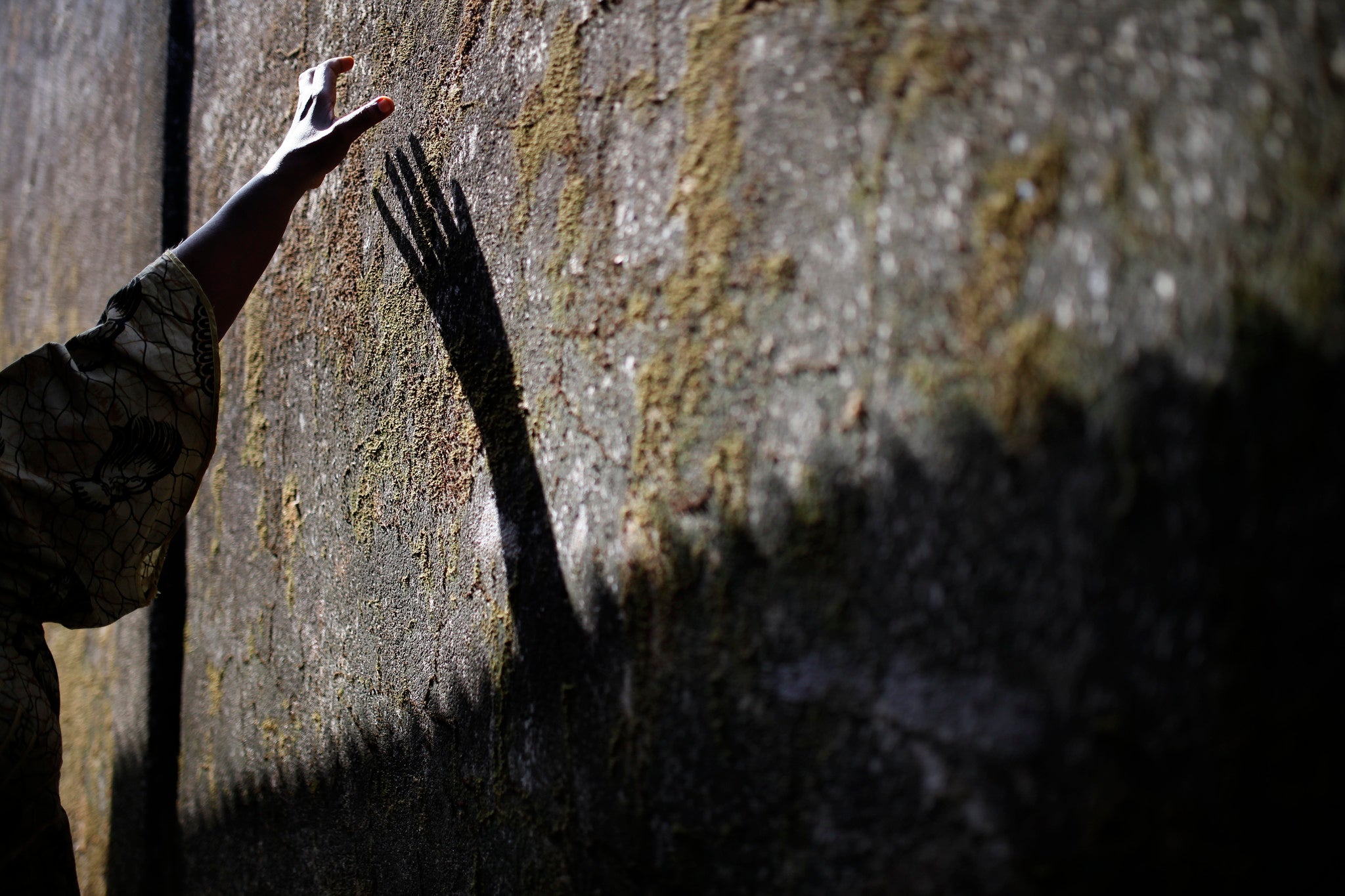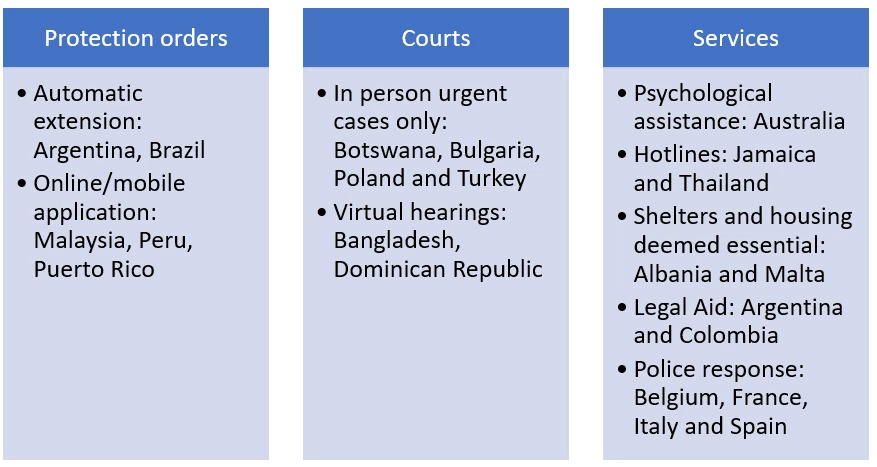 © Dominic Chavez/Banco Mundial
© Dominic Chavez/Banco Mundial
Early this year, the world became familiar with “stay-at-home" and “shelter-in-place" orders, unprecedented measures adopted to keep us safe in the midst of the coronavirus pandemic. For countless women worldwide experiencing domestic violence, however, home is not a safe place. Abuse survivors suddenly found themselves shut in with their abusers. Forced coexistence, job loss, escalating stress and anxiety about the future has led to increased household tension, which turned many partners into abusers and exacerbated existing abuse.
In April, UN Chief Antonio Guterres made an appeal for peace in homes: where women should be safest, many of them are cornered without a way out from violence. In the UK, domestic abuse killings had more than doubled during the first two months of lockdown. In the United States new research found evidence of an increase not only in domestic violence cases, but also in the severity of the injuries reported. Loss of economic opportunities has caused women to increasingly work in the informal sector, where they are more exposed to the risk of sexual harassment and abuse, as reported in Cameroon and Nigeria. In India, women’s groups have revealed that there is pressure on girls to rethink child marriage as an option, as access to education and livelihood is uncertain. As working from home using digital technology has become the new norm for many, workers around the world are more exposed to cyberbullying and technology-enabled violence and harassment. While an increase in calls to helplines and reports to the police was observed, women survivors of violence faced additional barriers to accessing services when stringent anti-COVID measures went into place.
What are countries doing to mitigate the impact of the current pandemic on violence against women? The World Bank Group’s Women, Business and the Law project is collecting new data on the measures that governments are implementing to address the unique challenges women face during this time. Preliminary findings indicate that several countries have implemented a variety of measures to facilitate survivors of violence access to protection orders, the court system and services such as medical and psychological support, legal aid, hotlines, shelters and housing, and financial assistance.
As courts faced numerous challenges to remain operational due to the lockdown measures, some countries continued to hear or prioritized “urgent cases” only, while others resorted to digitalization in order to continue functioning. Botswana, Bulgaria, Poland and Turkey for instance, kept their courts open, but only to hear urgent cases, such as domestic violence and family matters ones. Bangladesh and the Dominican Republic established of virtual hearings. Malaysia digitalized its procedure to obtain protection orders as well as access to shelters and legal aid, which are provided at no cost. Similarly, in Peru and Puerto Rico a protection order can be requested via WhatsApp or email. Some judiciaries, such as the Argentina and Sao Paulo, Brazil ones, opted for automatically extending the validity of protection orders, which were set to expire during the lockdown.
Services for survivors of violence vary quite a lot across regions and countries and the response during the pandemic ranged from ensuring shelters remain open, to providing alternative safe spaces, to broadening the type of support services that are available. For example, Albania adopted a protocol to guarantee the undisrupted functioning of shelters during the pandemic by listing them among the essential services. Given the pressure shelters were experiencing due to the increasing demands of survivors of violence in Malta, the Government extended the Rent Housing Benefit Scheme to survivors of violence. Australia approved additional funding to strengthen and increase the response capacity of already existing programs such as counseling services and the national violence hotline. Survivors seeking information to report cases and legal aid can reach out to a Whatsapp number in the city of Buenos Aires and to a hotline and online services in Colombia. Jamaica established a hotline operated by volunteers, and set up a specific program to train and build capacity of helpline responders. In Thailand, Twitter launched the hashtag #thereishelp to redirect users experiencing gender-based violence to local hotlines to seek help.
In Belgium, France, Italy and Spain pharmacies -- the only stores open besides grocery stores during the lockdown -- provided anti-violence measures and advice to survivors, as well as the activation of police emergency protocols through the use of the codewords “masque 19”, “mascherina 1522” and “mascarilla 19”. In Italy the State Police app Youpol was updated to receive domestic violence complaints, not only by the survivors themselves but also by neighbors or other family members, even anonymously.
Figure 1 Examples of measures to address violence against women during COVID-19 pandemic
The World Bank has elaborated a set of approaches to address the gender-based violence crisis resulting from the unprecedented threats posed by the COVID-19 pandemic. The World Bank response to the COVID-19 crisis aims at preventing and responding to domestic violence through protection, support services and reporting mechanisms, including helplines and services targeting gender-based violence and mental health. The strategy takes into account behavior change and social care services to minimize the increase in intimate partner and intra-family violence. Examples of emergency responses that countries could consider include facilitating the access to the digital world through mobile phones to enable women access to gender-based violence reporting mechanisms, and allocating funding and providing training for gender-based violence health care response providers.
Investing in the elimination of gender-based violence is smart economics. Violence against women is one of the major barriers to women’s participation in the economic, social and political spheres, not to mention its economic cost. Evidence shows that a joint effort is needed to successfully respond to the rise in gender-based violence cases during the pandemic: lawmakers, policymakers, law enforcement, civil society organizations, service providers, researchers all play a vital role in supporting women and helping them out of the cycle of violence that the current pandemic is generating. Women, Business and the Law 2021 will continue supporting this global effort by presenting a comprehensive overview of the most diverse and advanced measures countries have taken so far to address this challenge, and shedding a light on this shadow pandemic.




Join the Conversation